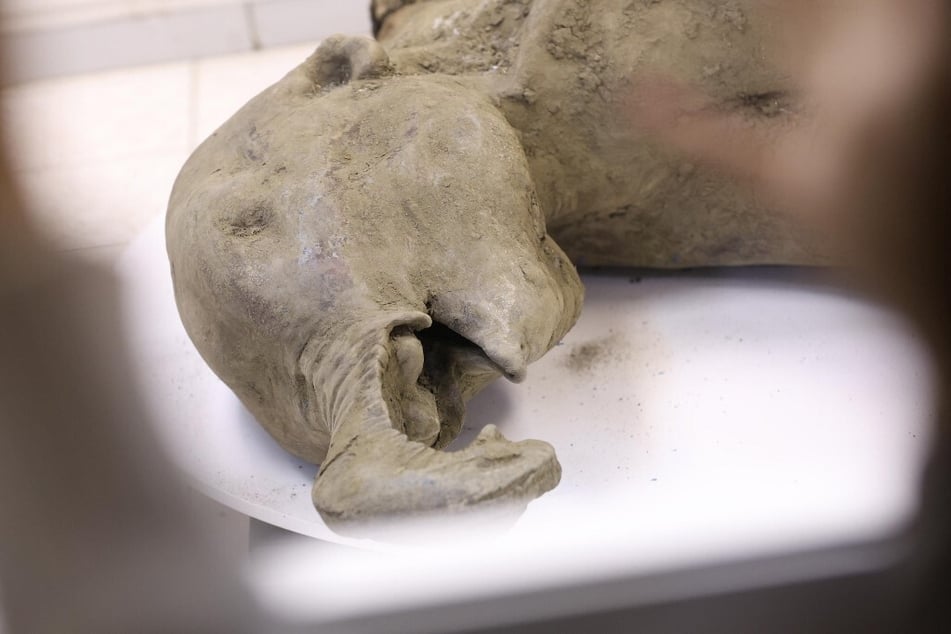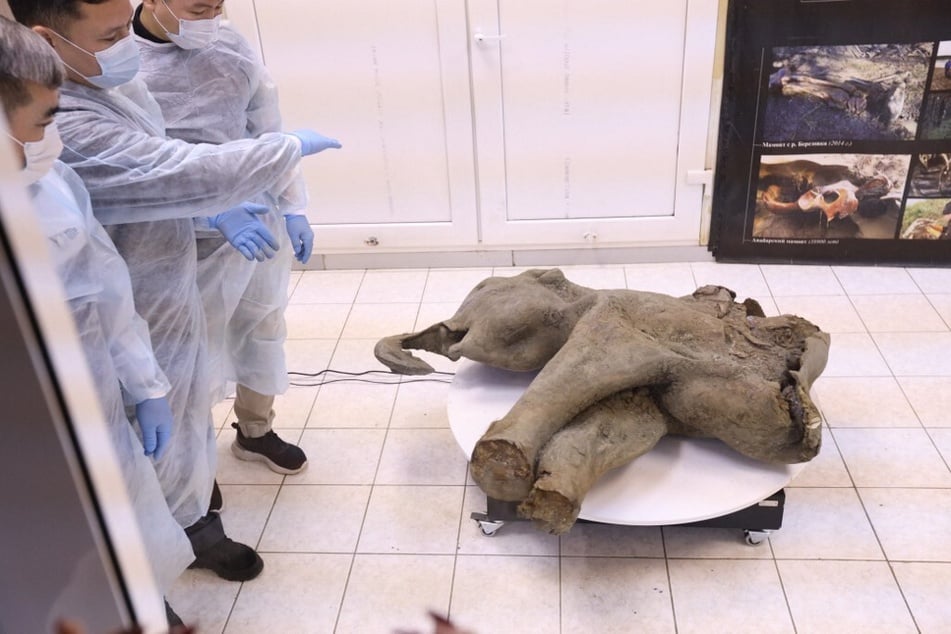Extremely rare baby mammoth remains found in Siberia in "unique discovery"
Yakutsk, Russia - Russian scientists on Monday showed off the remarkably well preserved remains of a baby mammoth found in the permafrost-covered region of Yakutia.

The 50,000-year-old female mammoth has been nicknamed "Yana" after the river in whose basin it was discovered this summer.
Experts say "Yana" is the best preserved mammoth carcass in the world and is one of only seven whole remains ever found.
Studies will now be carried out to work out her exact age at death, estimated at "one year old or a bit more."
The carcass was shown at the Federal University of the North East in the regional capital of Yakutsk, the institution said in a statement.
"We were all surprised by the exceptional preservation of the mammoth," rector Anatoly Nikolayev said.
Researcher Maxim Cheprasov said it was a "unique discovery."

Russian permafrost helps preserve remains
The remains weigh 397 pounds and are four feet tall and around 6.5 feet long.
The carcass was dug up near the Batagaika research station where the remains of other prehistoric animals – a horse, a bison, and a lemming – have also been found.
Before this discovery, only six mammoth carcasses had been found in the world – five in Russia and one in Canada, the university said.
Yakutia is a remote region bordering the Arctic Ocean. Its permafrost acts like a giant freezer which preserves the remains of prehistoric animals.
Cover photo: MICHIL YAKOVLEV / NORTH-EASTERN FEDERAL UNIVERSITY IN YAKUTSK / AFP